
Statistics
Health Conditions

Discovering a gene related to certain diseases doesn’t mean your pup will develop the disease but we can try and reduce the risks.
Consider the disease Hyperuricosuria (HUU) which is often seen in Dalmations and some other breeds; this leads to increased amounts of urate crystals and stones forming within the kidneys and bladder.
If we know that your pup has a propensity for this disease you can manage the risk through lifestyle and dietary management.
Medication Sensitivities
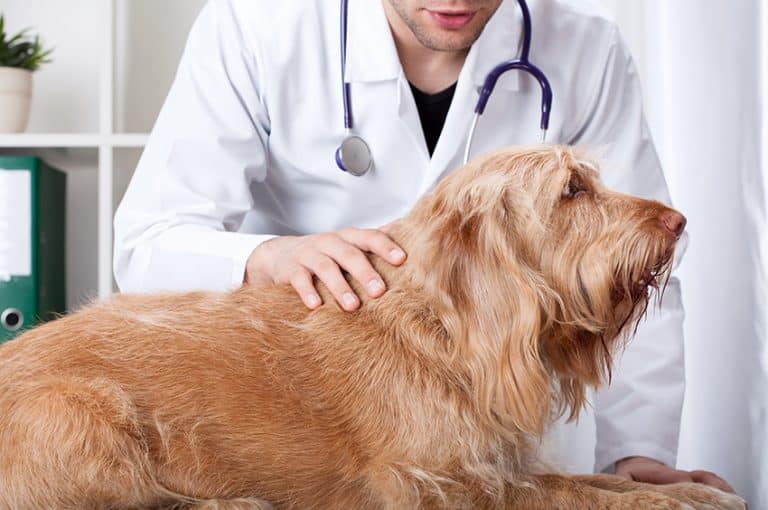
One example of this is the MDR1 gene which codes for multi-drug resistance; generally, herding breeds are at increased risk of nasty, even fatal reactions to some medications such as Ivermectin (commonly used anti-parasitic treatment) or Vincristine (a chemotherapeutic agent used for cancer patients).
Dog DNA test for Mixed Breeds

Some authorities or housing management require proof of your dog’s breed heritage for the purposes of eliminating certain breeds from the area or building such has happened in New York City in 2015.

If you’re considering moving with a dog, make sure you know if your new home will require such a certified test.
Dog Breed DNA Test
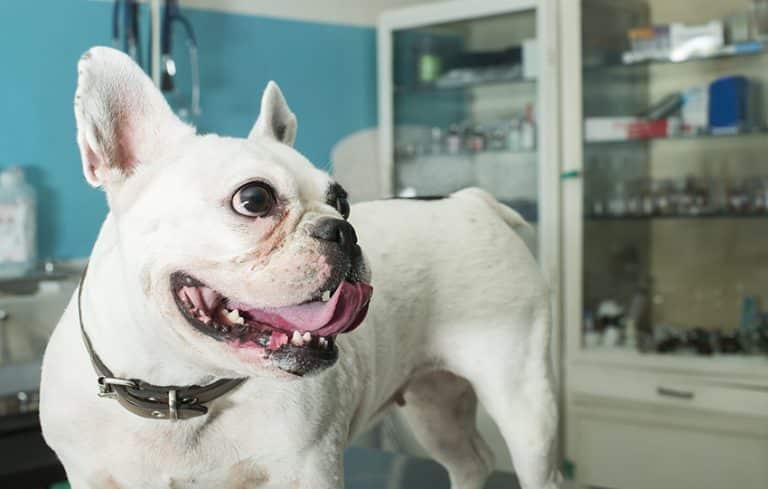


Size

The obvious caveat to this is that it can’t be 100% accurate; remember genetic tests indicate potential but not necessarily the reality of your pup’s life.
Breeding risks

Traits

Dog DNA tests help with obedience training
Your pup is a product of both their genes AND environment so traits like personality, obedience etc. are not solely influenced by genetics. Having said that, learning about your pooch’s breed heritage can make suggestions regarding their behavior and how to harness their energy to reduce chaos.

Dog DNA testing and Human Disease
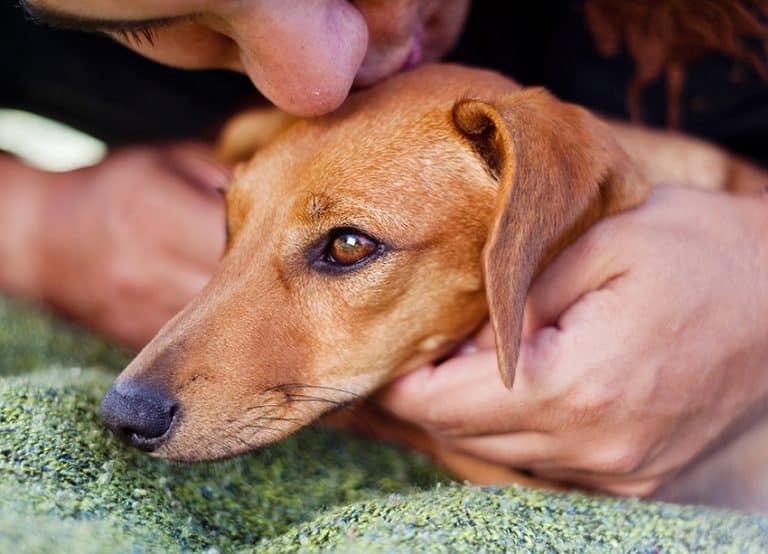
The NHGRI Dog Genome Project has a primary focus on the genetics of health in domestic dogs, particularly identifying genes that may be involved in cancer and over 350 other inherited diseases. This research in turn, may actually help further our understanding of human diseases so it’s a win-win situation!
Dog Poop DNA Testing


Step 1: Collect the Sample
Samples are usually cheek swabs or blood samples.
Step 2: Bursting the cell
Step 3: Separating the DNA
Step 4: Copying the DNA
Step 5: Testing
The DNA is now “searched” for specific genetic markers that identify the risks of developing certain diseases or that are related to breed etc..
Step 6: Matching
How long does it take to receive Dog DNA results?
Getting Your Dog's DNA Sample
Dog Saliva DNA Test

Dog Blood DNA Test
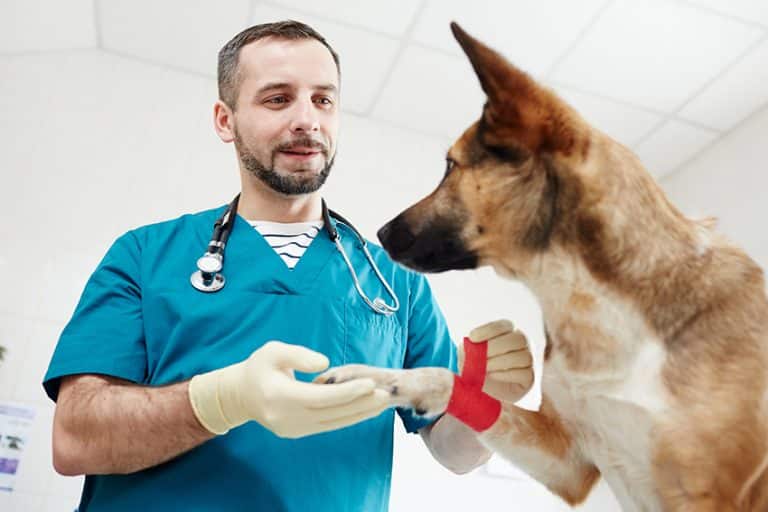
The Cost of Dog DNA Testing

The price will vary depending on what company and tests are selected but tests start from around $60 to over $200. Some other factors that will play a role when you’re choosing which test are:
- How big is that laboratory’s Database for your selected test?
- What type of sample will be required?
- How long will it take to receive the results?
- How will the results be interpreted and reported to you?
The Risks

Dog DNA Registration

The AKC have a DNA registration program in place to primarily verify parentage or the genetic identity of a pup; these test’s do not identify breed. Registration is compulsory for some stud dogs and imported breeding dogs but pet owners are urged to have their pet’s DNA added even if breeding is not planned.
This protects both responsible paw-rents and landlords who may be fined for pollution by the Environmental Protection Agency.

- How many genetic markers does the test use for comparison?
- What scientific research have they used to support their tests and results?
- Are the company a Genetic Test Provider (GTP) participating in the Harmonization of Genetic Testing for Dogs?
Suitability of the Test
Interpretation of results
Dog DNA Test Accuracy

The goal of HGDT is to improve standardization and robusticity of these tests.
One way to ensure an accurate test is to check the DogWellNet (IPFD) laboratory search function provided by the IPFD.
DogWellNet: Guidance on genetic testing in dogs
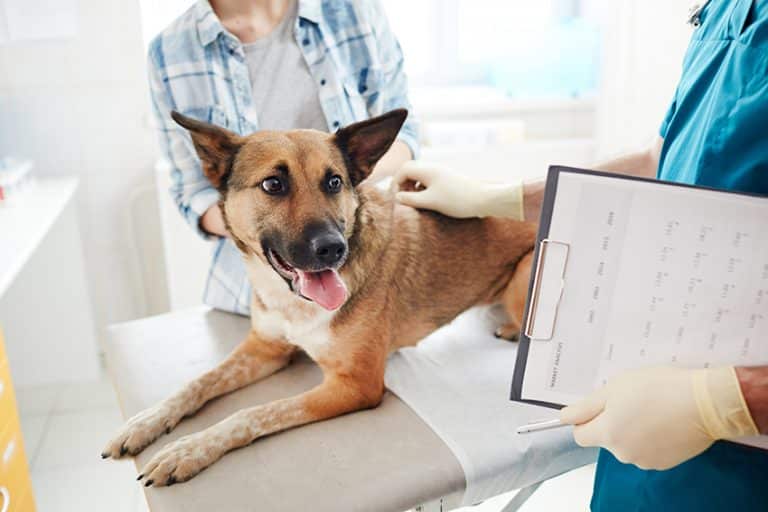
This can improve genetic diversity and thus reduce the incidence of certain heritable diseases within a population. There are two types of heritable conditions that we will discuss here:
1. Autosomal-dominant Conditions
Clear
Heterozygous Affected
Homozygous Affected

2. Autosomal-recessive Conditions
Clear
Carrier
Affected

DNA linkage Tests
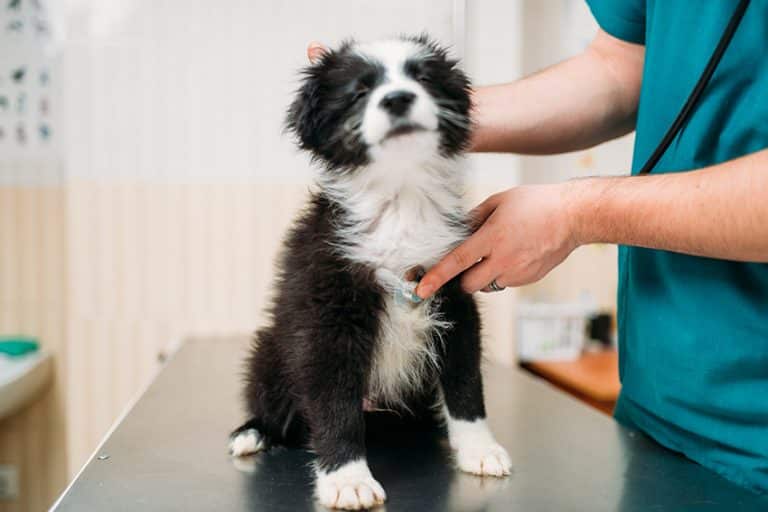
Remember! Just because your best friend has a certain disease-related gene doesn’t mean they will develop the disease. Never make a life-changing decision based on genetic results!
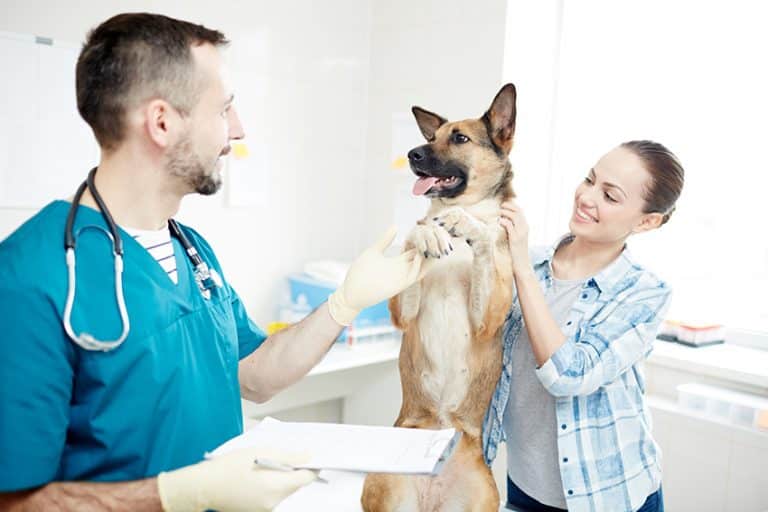
UC Davis Veterinary Genetics Laboratory
- Parentage
- Traits including coat color
- Health conditions including breed specific disorders
NC State Veterinary Hospital DNA testing
WSU Veterinary Clinical Pharmacology Laboratory
OFA – The Canine Health Information Centre
Coupled with the University of Missouri and UC Davis, the OFA acts as a medium between owners and the laboratory to certify genetic health results. Samples are easily taken using cheek swabs or even blood samples (considered the gold standard sample) Their website provides a comprehensive list of genetic tests available including those for dilated cardiomyopathy and Fanconi syndrome. Client’s can also opt in to the development of their canine DNA respository for future research to help improve the health and welfare of humans’ best friends.

Final Thoughts

- 1. Clarke, T. (2016). “Type” as Central to Perceptions of Breed Differences in Behavior of Domestic Dog. Society & Animals 24 pp467-485
- 2. https://research.cornell.edu/news-features/whats-your-dogs-true-dna
- 3. https://www.merriam-webster.com/dictionary/purebred
- 4. Levin, J., A. Arluke & L. Irvine (2017). Are People More Disturbed by Dog or Human Suffering? Influence of Victim's Species and Age. Society & Animals 25 pp1-16
- 5. https://research.nhgri.nih.gov/dog_genome/
- 6. Ostrander, E.A. (2012). Both Ends of the Leash – The Human Links to Good Dogs with Bad Genes. N. Engl. J. Med. 367 pp636-646
- 7. Gagliardi, R., S. Llambi & M.V. Arruga. (2015). SNP genetic polymorphisms of MDR-1, CYP1A2 and CYPB11 genes in four canine breeds upon toxicological evaluation. J. Vet. Sci. 16(3) pp273-280
- 8. https://www.nih.gov/news-events/news-releases/researchers-identify-gene-involved-dog-size
- 9. Sargan, D.R. (2004). IDID: Inherited Diseases in Dogs: Web-based information for canine inherited disease genetics. Mamm. Genome 15 pp503-506
- 10. Bannasch, D., N. Safra, A. Young, N. Karmi, R.S. Schaible & G.V. Ling (2008). Mutations in the SLC2A9 Gene Cause Hyperuricosuria and Hyperuricemia in the dog. PLoS. Genet. 4(11)
- 11. Parker, H.G., A.V. Kukekova, D.T. Akey, O. Goldstein, E.F. Kirkness, K.C. Baysac, D.S. Mosher, G.D. Aguirre, G.M. Acland & E.A. Ostrander (2007). Breed Relationships facilitate Fine-Mapping studies: A 7,8-kb deletion cosegregates with Collie eye anomaly across multiple dog breeds. Genome Res. 17(11) pp1562-1571
- 12. Manz, E., B. Tellheim & M. Krawczak (2017). Prospective evaluation of a patented DNA test for canine hip dysplasia (CHD). PLoS ONE. 12(8): e0182093
- 13. Lewis, T.W. & C.S. Mellersh (2019). Changes in mutation frequency of eight Mendelian inherited disorders in eight pedigree dog populations following introduction of a commercial DNA test. PLoS ONE. 14(1): e0209864
- 14. O'Neill, D.G., D.B. Church, P.D. McGreevy, P.C. Thomson & D.C. Brodbelt (2014). Approaches to canine health surveillance. Canine Genet. Epidemiol. 1(2) doi:10.1186/2052-6687-1-2
- 15. Gunter, L.M., R.T. Barber & C.D.L. Wynne (2018). A canine identity crisis: Genetic breed heritage testing of shelter dogs. PLoS ONE. 13(8): e0202633
- 16. https://embarkvet.com/resources/blog/breeds-dog-dna-statistics-2017/
- 17. https://www.akc.org/dog-breeds/
- 18. Mellersh, C. (2008). Review – Give a dog a genome. The Veterinary Journal 178 pp46-52
- 19. https://www.nbcnewyork.com/news/local/pet-policy-discrimination-nyc-building-dna-testing/606114/
- 20. dogwellnet.com/ctp/
- 21. https://dogwellnet.com/index.php?app=dwlabs&module=search&controller=labs
- 22. https://www.thekennelclub.org.uk/health/for-breeders/dna-testing-simple-inherited-disorders/
- 23. https://www.vgl.ucdavis.edu/services/dog.php
- 24. https://cvm.ncsu.edu/nc-state-vet-hospital/small-animal/genetics/submit-dna-testing/
- 25. https://vcpl.vetmed.wsu.edu/
- 26. ofa.org
- 27. van Rooy, D., E.R. Arnott, J.B. Early, P. McGreevy & C.M. Wade (2014). Holding back the genes: limitations of research into canine behavioral genetics. Canine Genetics and Epidemiology 1(7)
- 28. https://www.thekennelclub.org.uk/our-resources/kennel-club-campaigns/compulsory-dna-registers/
- 29. https://dnacentre.co.uk/dna-testing-services/pooprints-dna-dog-waste-identification/
- 30. https://www.vin.com/apputil/content/defaultadv1.aspx?id=3861465&pid=11243
- 31. https://dogwellnet.com/
- 32. https://dogwellnet.com/ctp/
- 33. https://www.akc.org/breeder-programs/dna/dna-resource-center/dna-profile-program/
- 34. https://www.denverpost.com/2019/12/07/denver-apartment-complexes-dna-dog-poop-pet-owners/
- 35. Cadieu, E. & E.A. Ostrander (2007). Canine genetics offers new mechanisms for the study of human cancer. Cancer Epidemiol. Biomarkers. Prev. 16(11) pp2181-2183
- 36. Decker, B., H.G. Parker, D. Dhawan, E.M. Kwon, E. Karlins, B.W. Davis, J.A. Ramos-Vara, P.L. Bonney, E.A. McNiel, D.W. Knapp & E.A. Ostrander (2015). Homologous mutation to human BRAF V600E is common in naturally occurring canine bladder cancer – Evidence for a relevant model system and urine-based diagnostic test. Mol. Cancer Res. 13(6) pp993-1002



